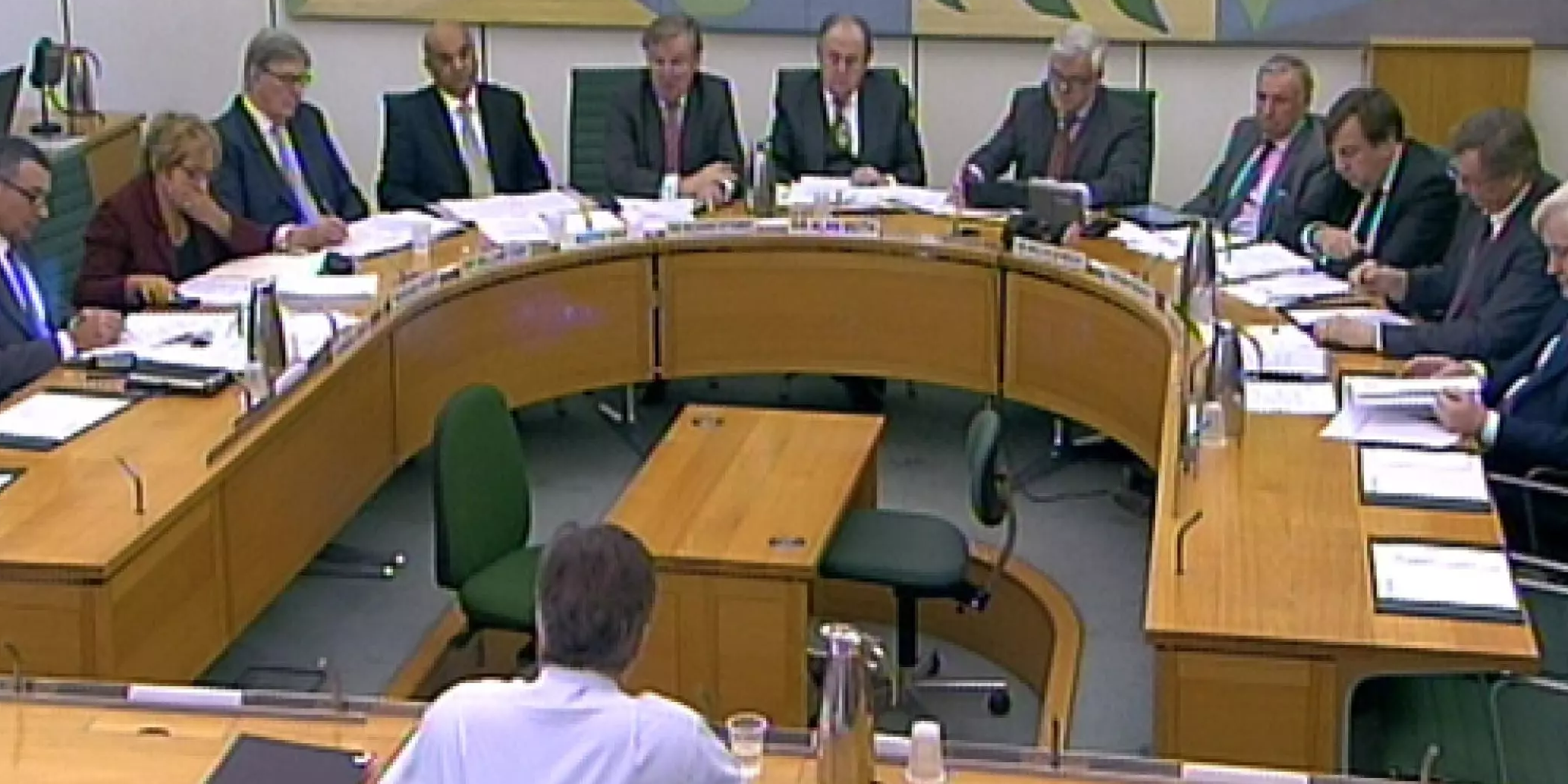 A UK government Select Committee
A UK government Select Committee

Summary
The VSAT licence has been designed to be available only in exceptional circumstances to further protect the exclusive licence. The annual £5,400 fee for a VSAT licence, set under the Regulations, is intended to achieve this. The government and some other bodies have an exemption to these laws.
FIG needs to show that a high-download-speed, low-latency, quota-free, accessible and affordable Internet Access service fit for the 21st Century, as provided by Starlink, is a necessity for the country as a whole. While FIG can alter the fee for the VSAT licence under the Regulations quite simply, the key task will be to demonstrate that Sure cannot meet the country’s needs of consumers, businesses, and the government under the exclusive licence with their existing services.
While this has been a requirement for obtaining an individual VSAT licence, it must now be demonstrated that this applies at a country-wide level.

What does the Select Committee need to consider?
The Select Committee could look at five principal aspects as described below:
- What are the Falklands’ 2017 ordinance communication objectives?
- The petition evidenced the need for fast Internet access.
- Can Sure meet the Falklands’ need for a fast Internet Access service under their exclusive license?
- What are the risks associated with reducing the VSAT licence fee?
- How could Sure respond to a reduction in the VSAT licence fee?


1. What are the Falklands’ 2017 ordinance communication objectives?
It is worthwhile to remind ourselves of some of the fundamental communications objectives outlined in section 4 of the 2017 Communications Ordinance, 4 Objectives & Principles:
“(b) to facilitate effective communication in the Falkland Islands and between the people of the Falkland Islands and the rest of the world;
(d) to enhance the efficiency of the Falkland Islands’ commercial electronic communications sector;
(e) to support the growth and development of the Falkland Islands’ economy;
(h) to provide affordable access to high-quality networks and carriage services in all regions of the Falkland Islands so far as reasonably practicable;
(m) to ensure access to all key electronic communications services;
(n) to encourage infrastructure investment into the Falkland Islands;
(o) to provide continued growth in international capacity to support increasing usage levels, so far as economically feasible;
(p) to support the delivery of public sector services (including education and healthcare)
(r) to promote innovative services to support the needs of the people of the Falkland Islands.
(s) to promote and support the use of up to date technologies in providing electronic telecommunication services.
Also, some of the Regulatory principles are particularly relevant as outlined in Section 12:
(a) that public policy in relation to electronic communications should aim to pursue the electronic communications objectives;
(b) that the needs of the people of the Falkland Islands are the paramount consideration in operating the licensing regimes under this Ordinance;
It is hard to imagine any Falkland Islands consumer or business disagreeing with the ambitions stated in the Communications Ordinance. In 2017. Achieving these goals then was impossible without the availability of a LEO satellite constellation or an undersea fibre optic cable. The O3B constellation was available then, but its suitability for use in the Falkland Islands was questioned as an equator-based satellite system.
A robust and fast Internet access service is crucial to delivering these objectives. SpaceX’s successful rollout of the Starlink satellite constellation, now used in over 100 countries, significantly enhances FIG’s ability to meet and deliver these ambitions.
2. The Petition evidenced the need for fast Internet access.
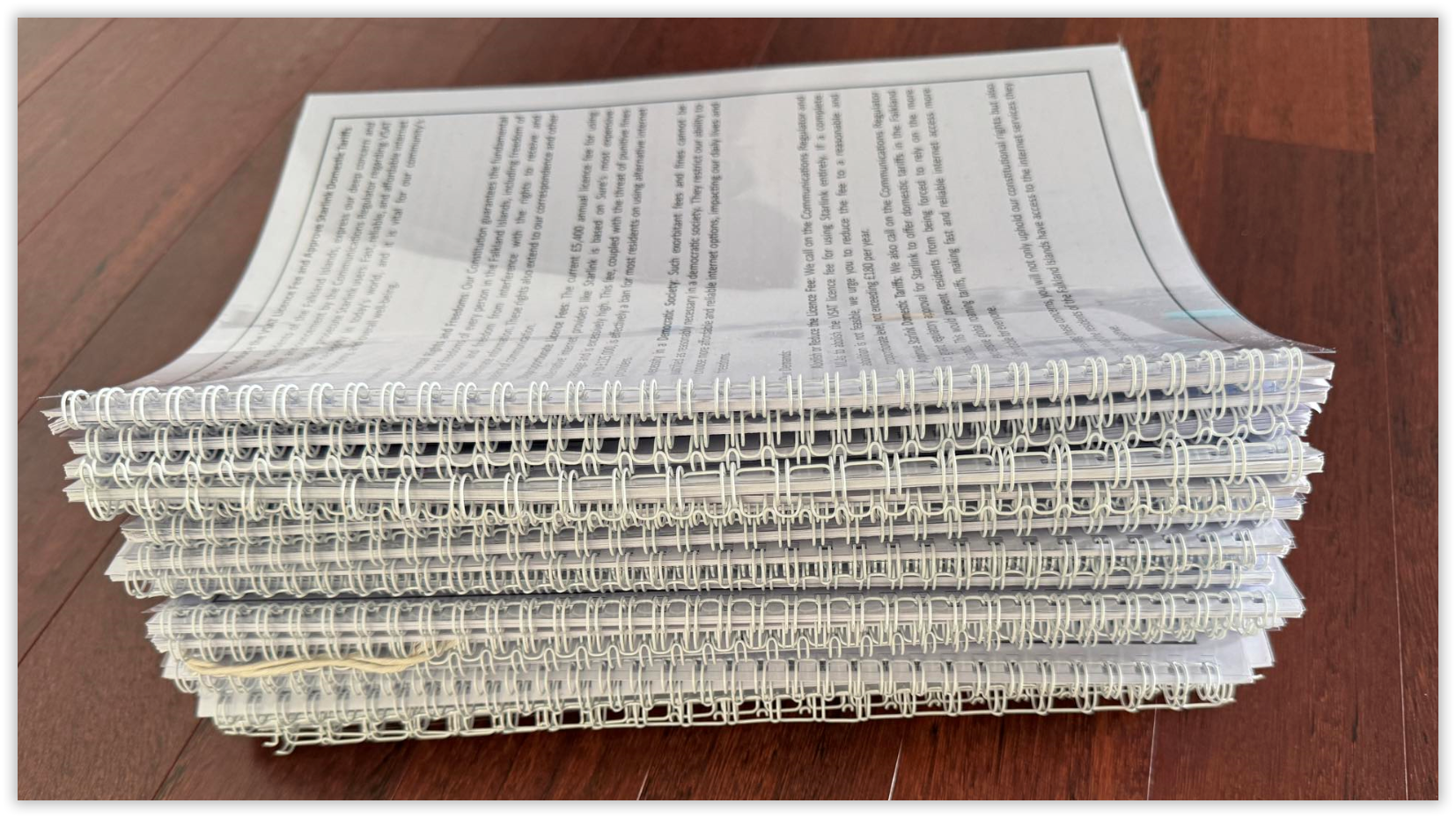 Many in the Falkland Islands clearly believed in the Starlink satellite constellation’s ability to provide the islands with an Internet Access service fit for the 21st Century, and so it proved in practice. News of this passed like wildfire around the islands, but obtaining a VSAT licence to use Starlink proved to be as impossibly difficult and expensive, just as it was designed to be.
Many in the Falkland Islands clearly believed in the Starlink satellite constellation’s ability to provide the islands with an Internet Access service fit for the 21st Century, and so it proved in practice. News of this passed like wildfire around the islands, but obtaining a VSAT licence to use Starlink proved to be as impossibly difficult and expensive, just as it was designed to be.
The Petition’s objective was to assess the level of dissatisfaction with Sure’s Internet Access service, which had been building up for many years. This was achieved by asking the islands’ communities if they wanted an Internet Access Service with the quality of Starlink at a reasonable license cost. The petition’s two demands were pragmatic and designed to be well within the ability of FIG and MLAs to deliver in the near term.
Whereas users were content to put up with a poor, low-performance service if there was no alternative, this is not the case now that Starlink has been demonstrated to work so well in the islands.
The overwhelming response from Stanley and Camp, with 70% of the community signing, clearly indicates a desperate need for an Internet Access service with Starlink’s performance. This represents a significant shift in attitude in recent months.
The ambition stated in the 2017 Communications Ordinance looks pretty appropriate when considered in the light of the demands of the petition:
(b) that the needs of the people of the Falkland Islands are the paramount consideration in operating the licensing regimes under this Ordinance;

3. Can Sure meet the Falklands’ need for a fast Internet Access service under their exclusive license?
Sure’s GEO broadband service.
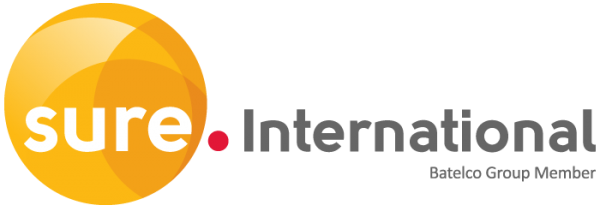 The existing Sure Intelsat GEO satellite service provides only a very basic Internet Access service, with download speeds and round-trip latencies that prevent consumers, businesses, and the government from effectively utilising the power of the Internet as available in the rest of the world. Internet-based services are incorporated in nearly all fields of human activity.
The existing Sure Intelsat GEO satellite service provides only a very basic Internet Access service, with download speeds and round-trip latencies that prevent consumers, businesses, and the government from effectively utilising the power of the Internet as available in the rest of the world. Internet-based services are incorporated in nearly all fields of human activity.
Furthermore, the Sure Internet Access service has recently proved highly unreliable, with outages cutting off the island’s international communications.
Specifically, the Sure Internet Access service only provides a range of download speeds from 2Mbit/s to 8Mbit/s, making it virtually impossible to use infotainment streaming services such as Netflix and YouTube in SD, let alone HD or UHD. This, combined with unreliability caused by extreme congestion, makes using the Internet an exceedingly frustrating experience.
However, the other major issue is the high round-trip delay of 550ms, which severely interferes with real-time voice-based services such as Skype, WhatsApp, or Messenger. The delay makes holding a discussion quite difficult and frustrating as all Falkland Islanders’ know. Not only are voice services negatively affected, but many computer applications are run in the ‘Cloud’, and many of these expect low round-time trip delays to function correctly. This has been an issue for business and government services, as demonstrated by the patient records system in the KEMH hospital.
Sure’s proposed low-latency service.
It has been hoped that Sure’s introduction of a low-latency service based on the OneWeb LEO satellite constellation would provide a suitable low-latency service for real-time communication to the UK. As the Falklands is a UK dependency, the vast majority of Internet-based real-time communication takes place with the UK.
However, Sure’s testing of this proposed service has shown a major deficiency: a round-trip delay of 300ms to the UK. Sadly, the service cannot be called a low-latency service that would benefit real-time communication. The 300mS delay would still disrupt voice-based real-time services, which really require round-trip delays of less than 150mS. A previous OpenFalklnds post discussed this situation in great detail and proposed what the cause of the high round-time trip delay may be.
Due to its limited capacity and higher operational costs, the proposed Sure low-latency service could not replace the Intelsat GEO service and would not used for streaming services. Currently, the term “not fit for purpose” seems apt.
In contrast, Starlink’s quota-free technical performance is ideal for both streaming and real-time voice services to the UK. In the Falkland Islands, Starlinks’ maximum download speeds exceed 300Mbit/sec, and round-trip delays to the UK are around 80ms, which is as good as found in the UK.
Sure cannot currently satisfy the islands’ need for fast Internet Access in Stanley and Camp using either the Intelsat-based GEO service or the proposed OneWeb-based LEO low-latency service. This opens the gate for consumers and businesses to apply for a VSAT licence as long as the licence cost is reduced to make the service affordable.
Lastly, the Communications Regulator has demonstrated that this is a correct evaluation by issuing VSAT licenses to consumers and businesses. Although exempt from needing a licence, even the government IT department uses Starlink to manage its cloud-based software. Other government departments will undoubtedly tread in the IT department’s footsteps.
 4 What are the risks associated with reducing the VSAT licence fee?
4 What are the risks associated with reducing the VSAT licence fee?

The level of risk that an individual would find acceptable depends on context. An entrepreneur accepts that a high level of risk is totally acceptable; however, a body responsible for the welfare of a community will be more cautious. Let’s look at some of the risks the Starlink Petition Select Committee may need to consider and rate their impact, 1 being low and 10 being high.
Risk level 1: Operational and Technical Risks: At the consumer level, there are near zero operational or technical risks associated with Starlink usage. Consumers, businesses, and government departments simply buy Starlink terminals and install and use them without impacting existing telecommunications infrastructure.
Risk level 1: Economic Implications for the Government: FIG does not receive operational revenue from Sure, so there will be little impact on government revenues in the short term.
Risk level 1: Influence and lobbying: Sure could have significant political influence on some individuals, leading to potential biases and resistance to amending the law. However, this is highly unlikely.
Risk level 1: Economic and Social Disparities: If Starlink’s services are not affordable or accessible to all population segments, it might exacerbate the digital divide. In the Falkland Islands, the opposite is actually the case. Starlink will provide a high-speed Internet Access service that Sure cannot. Starlink will highly benefit Camp, where Sure has limited ability to provide high-speed Internet Access service.
Risk level 1: National Security Concerns: Concerns about data privacy and communications security could arise. However, the use of Starlink does not raise any security concerns or consequences due to its extensive use worldwide by governments and the military. The islands’ government is already using it, and a foreign company, Intelsat, already provides the islands’ connectivity.
Risk level 3: Socio-Political Risks: There could be public opposition from those Sure customers loyal to Sure or are concerned about change. However, the success of the recent Starlink Petition would lead to the opinion that this would not represent a significant issue.
Risk level 9: Regulatory and Legal Challenges: Sure might leverage its influence to push for restrictive regulations against Starlink usage. If not handled carefully, Sure could instigate legal action such as ‘Breach of Contract’ over Starlink’s market entry, and regulatory compliance arguments could ensue.
Risk level 9: Economic impact on Sure Falkland Islands: Starlink usage by its customers clearly disrupts the monopoly market enjoyed by Sure Falkland Islands and will lead to identifiable financial revenue loss for them. Sure must provide objective financial analysis to demonstrate the level of potential loss and how this will affect the business’s bottom line. This is especially important if a claim is made by Sure that the loss would affect the business’s fundamental viability in the islands. Anecdotal comments should be classed as unacceptable.
Risk level 10: Universal Service Obligations: The continuing maintenance of Sure’s Universal Service Obligations is a principal risk, if not the biggest one.

5. How could Sure respond to a reduced VSAT licence fee?
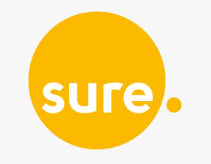
Let’s indulge in some speculation, even if it may not align with actual outcomes. The above risk evaluation clearly indicates that Sure’s reaction to a possible Starlink licence cost reduction represents the most significant perceived risks. of course, it is completely unknown how the management of Sure International, the parent company of Sure Falkland Islands, will respond to the call to present to the Select Committee.
The company’s response could vary widely. Their stance could be perceived positively or negatively and may not always be logical, as emotions can influence decisions under pressure. Let’s rate the possible responses on a scale of 1 to 10 based on their willingness to accept Starlink, with 1 being ‘positive acceptance’ and 10 being ‘negative non-acceptance’.
Level 1: Complex Licensing Requirements: Sure, could advocate continuing the successful 160-16P law designed to prevent VSAT self-provisioning. This approach was successful in 2016 but simply does not work in today’s Starlink-focused times.
Level 1: Acceptance by Sure that Starlink usage on the islands is inevitable. Sure stands to benefit significantly from adopting a positive stance toward Starlink for four main reasons:
- Most incumbent telecommunications companies globally acknowledge Starlink’s strengths in LEO technology and its widespread adoption, especially on remote islands. While they may not welcome the competition, Starlink’s presence is an undeniable reality.
- Although Starlink’s usage may reduce Sure’s broadband service revenues, the most pragmatic and advantageous approach for Sure is to accept Starlink as a competitor, despite holding an exclusive license.
- By collaborating amicably with the government to find an optimal path forward, Sure can ensure the best outcome for itself, the Falkland Islands Government (FIG), and the islanders.
- Adopting a cooperative attitude is crucial for Sure to avoid jeopardizing future negotiations with FIG to remain the incumbent telecommunications provider beyond 2028.
Level 1: Sure will become a Starlink reseller: Sure could offer to become a reseller of Starlink Terminals even if the licence cost is reduced. However, there would be little benefit to them to do so financially. Also, this stance would probably not be acceptable to consumers and businesses and Sure could be boycotted. It would also raise questions about the status and strategy of their OneWeb-based low-latency service.
Level 1: Spectrum Interference Claims: Sure could claim that Starlink’s operation would interfere with existing telecommunications services, thereby seeking to block its licensing. In practice, this would be unlikely with the limited number of spectrum users on the islands (KTV, BFBS, Sure and military). Moreover, if there were any spectrum interference issues, they would have been flagged up by now, as many legal Starlink terminals are in use on the islands.
Level 2: Promoting Local Benefits: Sure will emphasise contributions to the local economy, community, and job creation, positioning itself as the better and more risk-free choice for consumers. No matter what stance Sure takes in front of the Select Committee, they will strongly emphasise this point.
Level 2: We need more time: Sure could ask for more time to sort things out. However, the introduction of the OneWeb low-latency service has been delayed for around nine months so far, with no sign (as of July 2024) of it happening. The development of the OneWeb service was agreed upon several years ago as Sure’s response to the mid-term licence review. Sure has consistently missed their multiple forecasts about the service’s availability.
Level 3: Regulatory Complaints: Sure could submit a formal complaint to the islands’ regulator alleging that Starlink does not meet local legal, technical, or operational standards. However, it is hard to conceive how this could be effectively achieved.
Level 5: Damage the economy: Sure could argue that introducing Starlink could harm the national economy by undermining the local telecommunications industry. This would not represent a valid argument as Starlink could enable new entrepreneurial local businesses and services currently held back by the existing poor broadband service.
Level 6: Increase service prices: Although the usual view is that introducing competition tends to reduce prices, Sure could argue that they would need to increase prices to compensate for lost revenues. Ongoing negotiations would determine the validity and the final outcome of this position.
Level 8: Staffing reduction: Sure could state that allowing Starlink usage would significantly reduce revenue and profit margins. Consequently, they would need to reduce staffing levels. This would be understandable and an acceptable element in any negotiations between FIG and Sure as long as it didn’t degrade operational support for its customers.
Level 8: KPIs would be impacted: Due to the reduced staffing levels, agreed KPIs could be missed. This would seem to be a spurious argument as less traffic on Sure’s networks would improve performance, not degrade it.
Level 8: Threatening to leave: Sure could threaten to leave the islands, although this would represent an extreme position. It would not achieve anything in a pragmatic negotiation and could be considered threatening and possibly irrational. Also, the significant revenue streams from all the other islands’ services, such as 4G and peripheral services, would be jeopardised. Because of this, it would be tough to imagine Sure taking such a position unless it was a final strategy if all negotiations broke down.
Level 9: Impact infrastructure investment: Reduced revenue and profits could lead Sure to state that the company’s current and future infrastructure investments would be negatively impacted. Sure previously took this approach before the Individual Licence was given to Sure in 2017. The degree to which this would be acceptable would be down to negotiations.
Level 9: Litigation: Sure could threaten to use a Judicial Review to take the government to court over Breach of Contract, regulatory, commercial non-compliance or other legal grounds. FIG can minimise this risk by ensuring that all government processes are followed in an open and accessible manner. This could be called an acceptable risk considering the transformational change Starlink will bring to the islands’ telecommunications services. As discussed above, such an approach would not be in Sure’s best interest.
Level 10: Universal Service Obligations will be threatened: Sure’s Individual Operating Licence states:
34.2 The Licensee shall provide fixed line telephony services and fixed line internet access services to: (1) 100% of houses in which a person lives for at least 6 months of the year; and (2) 100% of business premises where a business operates from those premises for at least 6 months of the year.
This is Sure’s highest-leverage argument to try to prevent the reduction of VSAT licence fees. Sure could claim that the potential reduced revenue will threaten their ability to provide universal service across the islands. Clearly, from the government’s and consumers’ perspectives, this is a mandatory obligation that cannot be varied.
However, this reduces to a ‘simple’ financial discussion around subsidies. Subsidies focussing on this rather than increasing Sure’s Intelsat satellite capacity may be beneficial. Any subsidies should be calculated to address the shortfalls in each service to bring Sure up to a reasonable and predetermined profit level for that service.

What happens after the Select Committee?
 Following the Select Committee’s (hopefully) positive views, the Legislative Drafting Team of lawyers will produce and publish the legislation. Legislative Drafters work with those instructing them to translate Government policy into clear and effective legislation.
Following the Select Committee’s (hopefully) positive views, the Legislative Drafting Team of lawyers will produce and publish the legislation. Legislative Drafters work with those instructing them to translate Government policy into clear and effective legislation.
“When a policy that requires a change to the law has been approved, the Government Directorate that administers the law must provide the drafting team with instructions. This will enable us to draft a new or amending law. Instructions tell the drafter what the Government’s policy objectives are and how the law needs to be changed to achieve them.
The Legislative process
Following production of a Bill or secondary legislation, the Legislation team continue to be involved in:-
- obtaining Executive Council approval of the draft law.
- arranging publication of a Bill or secondary legislation in the Gazette;
- progressing a Bill through Legislative Assembly.
- obtaining assent to a Bill or arranging making of secondary legislation (by the Governor); and
- arranging publication of an Ordinance or secondary legislation in the Gazette.
The final step is formally approving the draft legislation by the Executive Committee (ExCo).
The 2028 future?
FIG could seek to remove Internet Access from the existing Sure’s exclusive licence, but this could be considered confrontational and could lead to ‘Breach of Contract’ legal action. However, it is clear that this path will not be considered as the licence is due to end on December 31st, 2027.
FIG could clarify in a future post-2028 licence that Internet Access services are excluded from the licence before the start of negotiations. However, this would only be a long-term solution.
Conclusions:
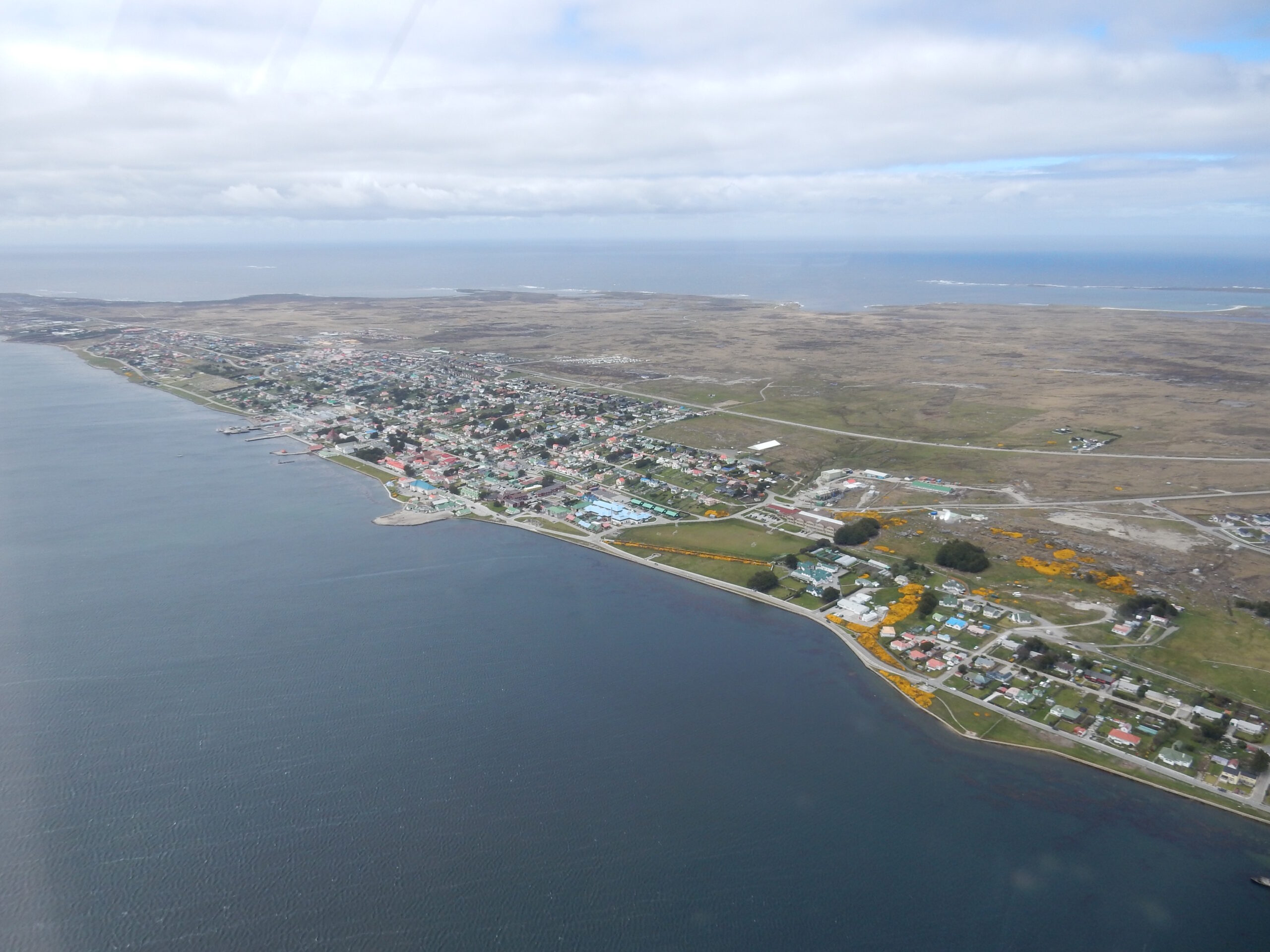 The entry of Starlink will undoubtedly bring benefits such as improved download and upload speeds, download as-much-as-you-want quota-free service, enhanced service quality, and reduced round-time trip delays. However, managing the associated risks is crucial to maintaining a balanced and fair telecommunications market in the islands.
The entry of Starlink will undoubtedly bring benefits such as improved download and upload speeds, download as-much-as-you-want quota-free service, enhanced service quality, and reduced round-time trip delays. However, managing the associated risks is crucial to maintaining a balanced and fair telecommunications market in the islands.
The islands have reached a significant watershed moment that cannot be ignored or delayed. Starlink will be extensively used on the islands, come what may because Sure is currently unable to provide a Starlink-like Internet Access service.
Achieving this requires the Falkland Islands Government (FIG) and Members of the Legislative Assembly (MLAs) to embrace and manage the identifiable risks of Starlink licence cost reduction. Starlink is a quintessential disruptive technology and as such, is already disrupting the status quo of broadband services in the islands. Cloud computing is as indispensable as electricity.
Furthermore, it is hoped that Sure International will understand this reality and adopt a proactive, cooperative, and supportive stance toward the Select Committee to ensure a smooth and rapid transition to the new circumstances. After all, Sure International is already quite familiar with the Starlink effect, with the Governor of Ascension Island formally approving Starlink usage on the island.
Let’s hope that Starlink Freedom Day, as I call it, arrives soon. It is the day that anyone in the Falklands can apply for a VSAT licence to use Starlink at an acceptable cost.
Note: I am most happy to make any corrections due to inaccuracies or incorrect assumptions.
Footnote: There is a clear and intense market battle today between GEO-HTS (High Throughput Satellite) and LEO-HTS worldwide markets, especially for Internet Access services. It is interesting to consider that the Sure-Intelsat GEO and the LEO Starlink services are just one battle in this war.
To quote analysys mason :
“Undoubtedly, traditional GEO-HTS satellite internet providers have been facing challenges with capacity constraints, which in turn have led to growing customer migration to Starlink. The recent setback involving the Viasat-3 satellite failure has only compounded these challenges. However, the launch of Hughes’s Jupiter-3 demonstrates the GEO player’s strategic response to the relentless competition posed by Starlink. The non-GEO HTS market is projected to exceed USD5.0 billion in annual revenue by 2032, exhibiting an impressive CAGR of 30.2%.
Meanwhile, the GEO-HTS market is anticipated to remain relatively stagnant between 2023 and 2025, largely due to the continuous decline in Viasat’s subscriber base. “

Chris Gare, OpenFalklands July 2024, copyright OpenFalklands

I would sign a petition if there is one.